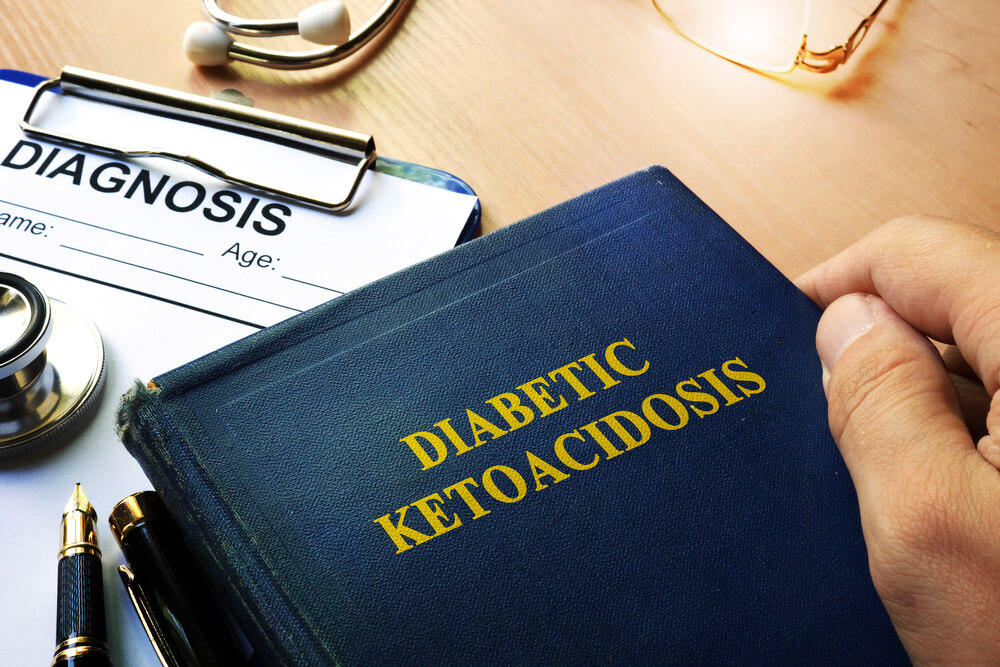What is Diabetic Ketoacidosis?
If you have diabetes, diabetic ketoacidosis complications are a real threat because they can emerge in both type 1 and type 2 diabetes. Diabetic ketoacidosis complications are much more common in individuals who have type 1 diabetes than those who have type 2 diabetes. Diabetic ketoacidosis is severe and life threatening and is caused when the body doesn’t receive enough sugar needed to produce energy. It happens when the body produces high levels of ketones because of a lack of insulin. Ketones are fatty acids that create an imbalance in the electrolyte system. Signs of diabetic ketoacidosis can be noticed when individuals frequently miss insulin doses or have certain types of infections.
Warning Signs of Diabetic Ketoacidosis
If you believe that you are in need of diabetic ketoacidosis treatment, speaking to your doctor or a medical professional is the best thing that you can to do make sure that you are doing what you need to do to get better. A doctor is able to diagnose diabetic ketoacidosis by noticing high levels of blood sugar as well as high levels of ketones and acidity in the blood. Here are some common signs of diabetic ketoacidosis that you can look out for if you believe that you are at risk:
- Dehydration
- Pain in the abdomen
- Nausea
- Vomiting
- Frequent trips to the bathroom
- Confusion
- Dry skin
- Dry mouth
- Low levels of consciousness (drowsiness)
- Breath that smells fruity
- Shortness of breath
- Breathing that can be considered deep and rapid
What Can Cause Signs of Diabetic Ketoacidosis?
Diabetic ketoacidosis is most common in individuals who have type 1 diabetes. It can develop when these individuals are not taking their insulin or have fallen ill with an infection. That doesn’t mean that it’s impossible for individuals with type 2 diabetes to develop diabetic ketoacidosis, it is just much more unlikely. Because diabetic ketoacidosis can occur because of lack of insulin to convert sugar into energy, there are certain stressors that can cause the lack of insulin.
- Infections
- Illnesses
- Signs of development of diabetes
Stressors such as infections and illnesses can create diabetic ketoacidosis. Noticing the signs of diabetic ketoacidosis can also be an initial notice of diabetes. If someone has not previously been diagnosed, developing diabetic ketoacidosis can help the individuals get the treatment they need for diabetes.
If you see you doctor, they may recommend diabetic ketoacidosis treatment. Treatment is almost always necessary and include therapy of insulin, fluids and electrolytes. Diabetic ketoacidosis treatment is almost always necessary because of the high mortality rate and risk of complications due to it. The best thing that can happen is early prognosis to not only get treatment but also find the underlying causes of it.
Diabetic Ketoacidosis Treatment
Treatment as stated above can include therapy of insulin, fluids and electrolytes with a goal of normalizing blood pH and bringing blood sugar levels back to normal. Individuals are closely monitored to make sure that all levels in the body are being regulated because there can be complications due to fluctuations in potassium levels. When patients are treated for diabetic ketoacidosis and have any underlying cause this treatment will also help them with their other problem which can include infection, heart attack or other stressors.
Taking preventative measure to ensure that diabetic ketoacidosis is not developed can be through the following steps:
- Take medications prescribed
- Become educated about symptoms of high blood sugar levels
- Never skip insulin doses
- Test insulin regularly
- Test your urine at home when you’re not feeling well
- Meet with your doctor when you’re not feeling well, especially if sugar levels are higher than normal
When patients are treated for diabetic ketoacidosis and have any underlying cause this treatment will also help them with their other problem which can include infection, heart attack or other stressors. Concerns about Diabetic Ketoacidosis, or any other ailment, should always be discussed with your doctor.

